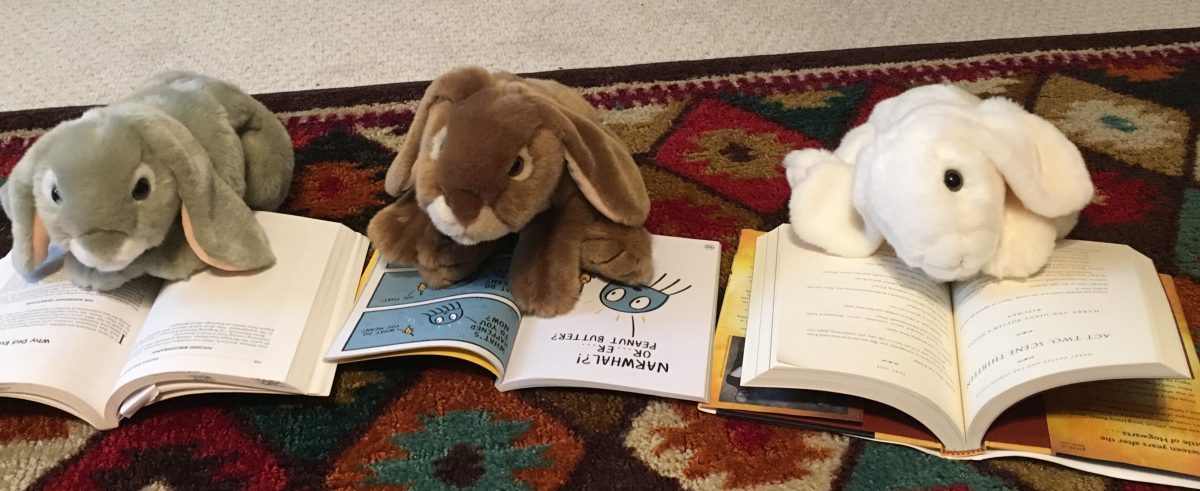Today Marshmallow reviews All-American Boys by Jason Reynolds and Brendan Kiely, first published in 2015.

Marshmallow’s Quick Take: If you would like to read a book about social justice, friendship, bravery, and family, then this might be the book for you.
Marshmallow’s Summary (with Spoilers): Rashad Butler has worked hard to be an All-American boy. His father believes that the military is the best option for a young Black man in America, so Rashad is in the ROTC drill team at Springfield Central High School. One Friday, Rashad is preparing to go to a party. While he is buying chips in a store, he leans down and reaches into his bag on the floor to get his phone to text his brother. A woman trips over him, and a police officer comes over to see what’s happening. He presumes that Rashad is trying to steal the chips. He drags him outside, handcuffs him, pushes him to the ground, and starts beating him. Rashad is arrested and sent to the hospital with a broken nose, several broken ribs, and internal bleeding.
Quinn also goes to Rashad’s school. Quinn’s father died in Afghanistan and is viewed as a hero. Quinn feels constantly pressured to be a perfect All-American boy, living under his father’s shadow, even after his death. He’s doing a pretty good job, however, playing on the school’s basketball team competitively. Within a couple weeks, scouts from colleges and universities will be watching their games, and Quinn is determined to be seen.
That very Friday, Quinn and his friends are at the same store, waiting outside to find an adult who could buy them alcohol. Quinn is still there when the police officer beats Rashad viciously and remains there long enough to recognize the officer, Paul, who is like a father figure to him. After his father died, Quinn was taken care of, taught, and protected by Paul who filled the part of a family for Quinn that his mother and brother didn’t. Quinn and his friends flee the scene, and Quinn tells his friend Guzzo (Paul’s brother) what he saw.
Soon, Rashad’s beating is covered by the news, so much so that Rashad sees this all over the TV while in the hospital. He is confused as to what to do next. His brother Spooney is enraged and helps organize a protest about police brutality. His mother is devastated and tries to stay strong. His father, on the other hand, is conflicted. His father, who was in the military and in the police force, believes that Black men should be disciplined and look like it, because that will prevent anything bad from happening to them. He doesn’t even believe Rashad in the beginning when he says he wasn’t stealing the chips.
Quinn is also conflicted. He has known Paul for such a long time, and his mind cannot connect the violent officer he saw to the caring, protective figure he’s known for so long. As a family friend to Paul and Guzzo’s family, his “allegiance” to Paul is presumed, but inside he is unsure. He knows that Rashad didn’t deserve to be beaten.
After that Friday, the city of Springfield is torn into chaos. Sides are taken and lines are drawn. “Loyalties” are put into question while citizens work to fight against social injustice and stereotypes. Meanwhile, Rashad and Quinn live in two different worlds, in two different situations, struggling to make sense of what just happened.

Marshmallow’s Review: I think All-American Boys is a very meaningful book. I have read and reviewed a book about police brutality from the perspective of a witness before (The Hate U Give). However, All-American Boys is unique because it is written in two different perspectives: the victim’s and the witness’s. So we see the narrative through the eyes of people with fundamentally different experiences. Rashad is Black and gets beaten by Paul, while Quinn is White and had been raised loving and respecting Paul. As expected, the two boys have a fundamentally different experience with racism. Each chapter is written from either Rashad’s or Quinn’s perspective, and they mostly alternate between the two narratives. Rashad’s chapters are written by Reynolds and Quinn’s are by Kiely, which adds depth and more detail to the storyline. The characters have a very realistic, down-to-earth feel (for example we get to connect with Rashad beyond his victimization as a young person who draws to express himself), as well as the school and small-town environment created by the authors. I find it impressive how the two authors wrote such a cohesive book together.
I have read another book by one of the authors (Jason Reynolds) before: Long Way Down. I have deeply enjoyed reading both, and I think this book, as well as that one, should be read by all. It is important for everyone to read and understand the perspectives of others, especially given how some situations are experienced in extremely different ways by different people based on their race.
All-American Boys might be more appropriate for bunnies older than ten because it has a lot of cursing, and the topic might be a bit heavy for younger ones. Otherwise, I would definitely recommend this book to all because of its well-written storyline, characters, and important message.
Marshmallow’s Rating: 100%.


RG’s comments:
__________
Seems to me that racism a more specific case of xenophobia and sadly, it is present in a large percentage of the world’s population. It probably started back when homo sapiens, neanderthals and other humanoids populated the world. This observation is not meant as an excuse, but it’s to illustrate the difficulty of its eradication.
KG’s comments:
__________
In this country, you can fight back and most of the time justice is served. In other countries you can’t fight back. However, racism, sadly, will still exist as it is ingrained. How to stamp it out is the question.
LikeLiked by 1 person